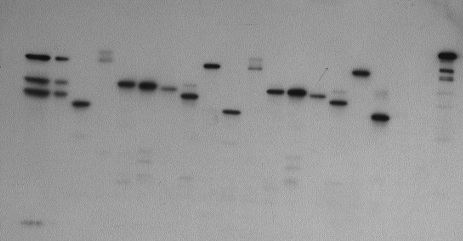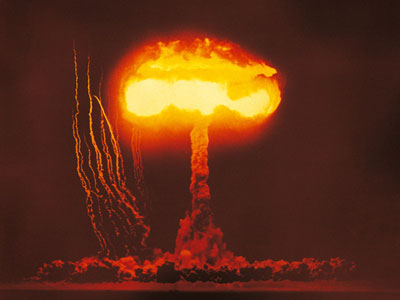 Melville on Science vs. Creation Myth
Melville on Science vs. Creation MythFrom Melville's under-appreciated Mardi: On a quest for his missing love Yillah, an AWOL sailor...
 Non-coding DNA Function... Surprising?
Non-coding DNA Function... Surprising?The existence of functional, non-protein-coding DNA is all too frequently portrayed as a great...
 Yep, This Should Get You Fired
Yep, This Should Get You FiredAn Ohio 8th-grade creationist science teacher with a habit of branding crosses on his students'...
 No, There Are No Alien Bar Codes In Our Genomes
No, There Are No Alien Bar Codes In Our GenomesEven for a physicist, this is bad: Larry Moran, in preparation for the appropriate dose of ridicule...









 In Atwood's world of Oryx and Crake, biotechnology has ruined the world, in more ways than one. As the result of a near-omnipotent ability to manipulate biology, society has become structured around biotech consumer products and services, with a major division between the consumers and the powerful biotech companies. The consumers (the "pleebs") live in a polluted, crime-ridden world outside of the highly secure, isolated, wealthy compounds where the employees of the biotech corporations live.
In Atwood's world of Oryx and Crake, biotechnology has ruined the world, in more ways than one. As the result of a near-omnipotent ability to manipulate biology, society has become structured around biotech consumer products and services, with a major division between the consumers and the powerful biotech companies. The consumers (the "pleebs") live in a polluted, crime-ridden world outside of the highly secure, isolated, wealthy compounds where the employees of the biotech corporations live.